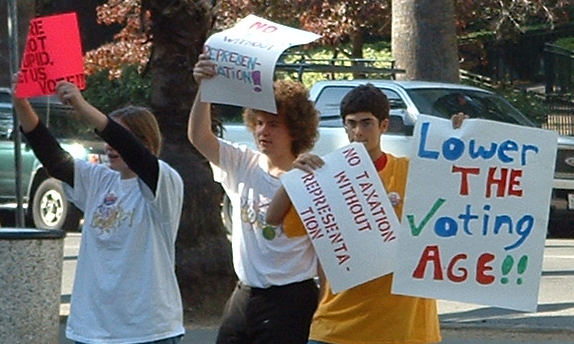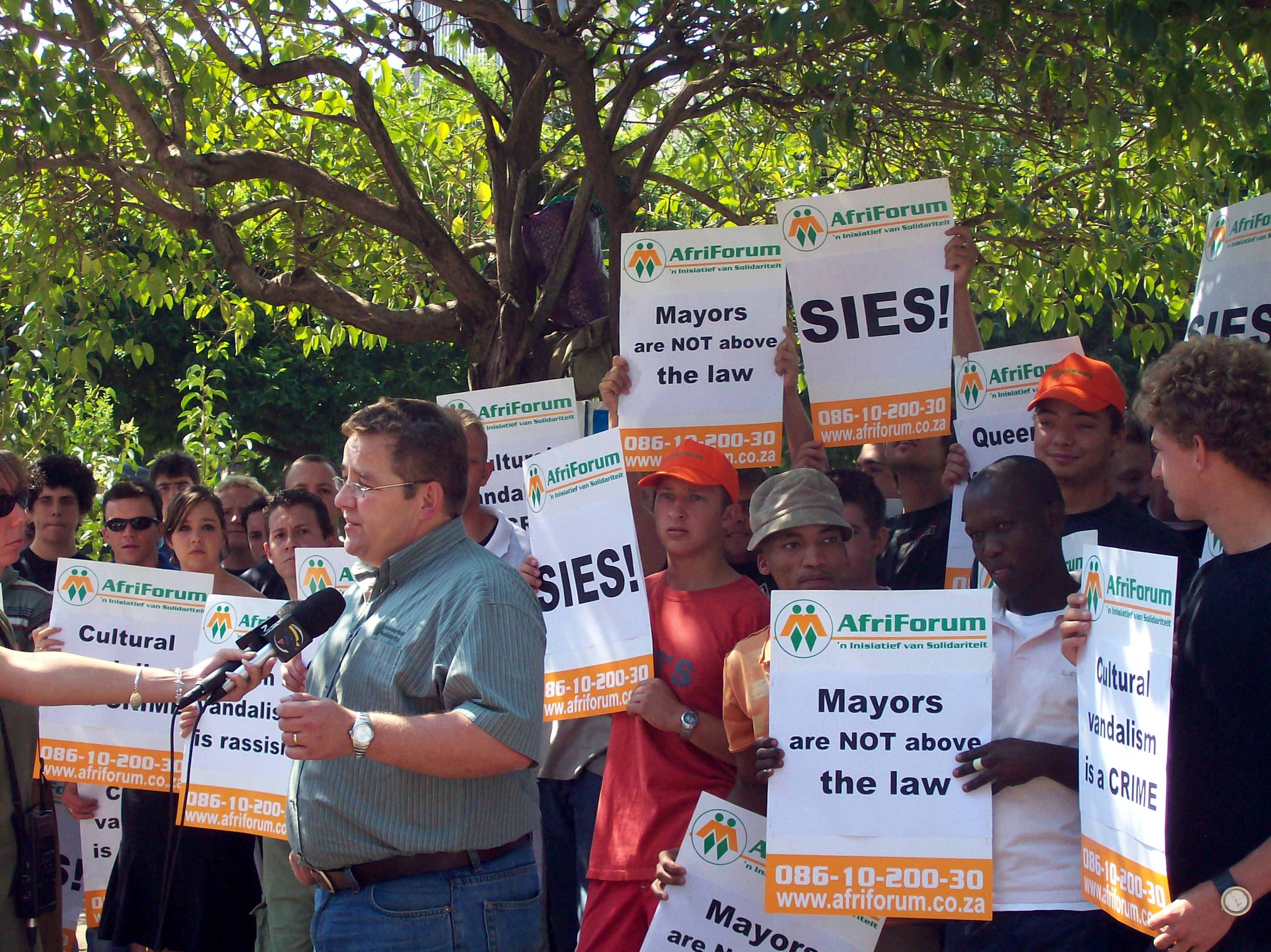|
Student Bill Of Rights
A student bill of rights is a document that outlines beliefs or regulations regarding student rights, typically adopted by a student group, school, or government. These documents can be policies, laws, or statements of belief. When put forth by a student organization or third party organization, groups that usually do not have the power of enforcement, student bills of rights are usually statements of belief. Even though they are not legally binding, these student bills of rights can act as foundations for future agreements or legislative efforts, helping others understand what students believe to be ethical treatment. The European Students' Union, for example, uses their Student Rights Charter when lobbying for student rights in the European Union Higher Education Area as a document representing the student will. The historic National Student Association in the United States used their Student Bill of Rights to help create a dialogue with the American Association of University P ... [...More Info...] [...Related Items...] OR: [Wikipedia] [Google] [Baidu] |
Student Rights In Higher Education
Student rights are those rights, such as civil, constitutional, contractual and consumer rights, which regulate student rights and freedoms and allow students to make use of their educational investment. These include such things as the right to free speech and association, to due process, equality, autonomy, safety and privacy, and accountability in contracts and advertising, which regulate the treatment of students by teachers and administrators. There is very little scholarship about student rights throughout the world. In general most countries have some kind of student rights (or rights that apply in the educational setting) enshrined in their laws and proceduralized by their court precedents. Some countries, like Romania, in the European Union, have comprehensive student bills of rights, which outline both rights and how they are to be proceduralized. Most countries, however, like the United States and Canada, do not have a cohesive bill of rights and students must use the c ... [...More Info...] [...Related Items...] OR: [Wikipedia] [Google] [Baidu] |
Canadian Union Of Students
Formed in 1963, the Canadian Union of Students (CUS) was the successor organization of the National Federation of Canadian University Students (NFCUS) formed in 1926. CUS like NFCUS was essentially a binational coalition of student councils at Canadian universities. Throughout the 1960s, CUS became increasing anti-war and Marxist-inspired, in part as a result of the Student Union for Peace Action especially after it ceased operating in 1966, following the creation of the Company of Young Canadians. CUS's increasing critique of capitalism and the US war on Vietnam led to a reaction by many CUS members who orchestrated a series of withdrawal referendums. CUS became non-viable by 1969 and ceased operating. Canadian students were without a formal national student organization until the National Union of Students (Canada) was formed in 1972. NUS was the precursor of the Canadian Federation of Students. Thus the National Federation of Canadian University Students (NFCUS) and the left- ... [...More Info...] [...Related Items...] OR: [Wikipedia] [Google] [Baidu] |
Youth Rights
The youth rights movement (also known as youth liberation) seeks to grant the rights to young people that are traditionally reserved for adults, due to having reached a specific age or sufficient maturity. This is closely akin to the notion of evolving capacities within the children's rights movement, but the youth rights movement differs from the children's rights movement in that the latter places emphasis on the welfare and protection of children through the actions and decisions of adults, while the youth rights movement seeks to grant youth the liberty to make their own decisions autonomously in the ways adults are permitted to, or to lower the legal minimum ages at which such rights are acquired, such as the age of majority and the voting age. Youth rights have increased over the last century in many countries. The youth rights movement seeks to further increase youth rights, with some advocating intergenerational equity. Codified youth rights constitute one aspect of ... [...More Info...] [...Related Items...] OR: [Wikipedia] [Google] [Baidu] |
The Freechild Project
The Freechild Institute for Youth Engagement is a nonprofit organization focused on creating connections between adults and young people through programs, technical assistance, publications, training, and curriculum. Adam Fletcher is the executive director, and the institute is located in Olympia, Washington.Mullahey, R. (2007"The FreeChild Project: Youth-led Social Change" American Planning Association. Retrieved 17 June 2008. The ''School Library Journal'' has said Freechild's website is, "By far the largest repository of projects, ideas, and organizational links, this resource provides more than adequate information to help students brainstorm ideas in order to start their own initiatives." History Fletcher started the organization as "The Freechild Project" in 2001. The organization changed its name to Freechild Institute for Youth Engagement in January 2018. Activities The mission of Freechild is "to advocate, inform, and celebrate social change led by and with young pe ... [...More Info...] [...Related Items...] OR: [Wikipedia] [Google] [Baidu] |
Students' Union
A students' union, also known by many other names, is a student organization present in many colleges, universities, and high schools. In higher education, the students' union is often accorded its own building on the campus, dedicated to social, organizational activities, representation, and academic support of the membership. In the United States, ''student union'' often only refers to a physical building owned by the university with the purpose of providing services for students without a governing body. This building is also referred to as a student activity center, although the Association of College Unions International (largely US-based) has hundreds of campus organizational members. Outside the US, ''student union'' and ''students' union'' more often refer to a representative body, as distinct from a ''student activity centre'' building. Purpose Depending on the country, the purpose, assembly, method, and implementation of the group might vary. Universally, the purpose of ... [...More Info...] [...Related Items...] OR: [Wikipedia] [Google] [Baidu] |
Student Activism
Student activism or campus activism is work by students to cause political, environmental, economic, or social change. Although often focused on schools, curriculum, and educational funding, student groups have influenced greater political events. Modern student activist movements vary widely in subject, size, and success, with a variety of students in various educational settings participating, including public and private school students; elementary, middle, senior, undergraduate, and graduate students; and all races, socio-economic backgrounds, and political perspectives. Some student protests focus on the internal affairs of a specific institution; others focus on broader issues such as a war or dictatorship. Likewise, some student protests focus on an institution's impact on the world, such as a disinvestment campaign, while others may focus on a regional or national policy's impact on the institution, such as a campaign against government education policy. Although st ... [...More Info...] [...Related Items...] OR: [Wikipedia] [Google] [Baidu] |
Student Rights
Student rights are those rights, such as civil, constitutional, contractual and consumer rights, which regulate student rights and freedoms and allow students to make use of their educational investment. These include such things as the right to free speech and association, to due process, equality, autonomy, safety and privacy, and accountability in contracts and advertising, which regulate the treatment of students by teachers and administrators. There is very little scholarship about student rights throughout the world. In general most countries have some kind of student rights (or rights that apply in the educational setting) enshrined in their laws and proceduralized by their court precedents. Some countries, like Romania, in the European Union, have comprehensive student bills of rights, which outline both rights and how they are to be proceduralized. Most countries, however, like the United States and Canada, do not have a cohesive bill of rights and students must use the c ... [...More Info...] [...Related Items...] OR: [Wikipedia] [Google] [Baidu] |
National Youth Rights Association
The National Youth Rights Association (NYRA) is a youth-led Civil and political rights led by Margin Zheng & Ashawn Dabney-Small President & Vice-President of NYRA organization in the United States promoting youth rights, with approximately 10,000 members. NYRA promotes the lessening or removing of various legal restrictions that are imposed on young people but not adults, for example, the drinking age, voting age, and the imposition of youth curfew laws. Youth rights movement The youth rights movement first utilized the Internet in 1991, with the creation of the Y-Rights listserv mailing list. Two members of that original Internet presence, Matthew Walcoff, and Matt Herman began a non-profit organization out of that mailing list known as ASFAR. Not too long after ASFAR was founded, a Rockville, Maryland high school student began a youth rights group called YouthSpeak. At the same time, the third youth from Canada, Joshua Gilbert, was starting a youth rights organization for ... [...More Info...] [...Related Items...] OR: [Wikipedia] [Google] [Baidu] |
Leonard Law
The Leonard Law is a California law passed in 1992 and amended in 2006 that applies the First Amendment of the United States Constitution to private and public colleges, high schools, and universities. The law also applies Article I, Section 2 of the California Constitution to colleges and universities. California is the only state to grant First Amendment protections to students at private postsecondary institutions. Attempts at a federal Leonard Law and for Leonard Laws in other states have not succeeded. About Republican State Senator Bill Leonard wrote the law to require private high schools, colleges and universities to protect their students' rights to freedom of speech "and other communication" that the government is required to protect for all of its citizens. Under the terms of the law, students may file civil lawsuits to seek injunctive and declaratory relief against their institutions; students may also recover any attorney's fees related to the case. In 2006, Califor ... [...More Info...] [...Related Items...] OR: [Wikipedia] [Google] [Baidu] |
Academic Bill Of Rights
An academy ( Attic Greek: Ἀκαδήμεια; Koine Greek Ἀκαδημία) is an institution of secondary or tertiary higher learning (and generally also research or honorary membership). The name traces back to Plato's school of philosophy, founded approximately 385 BC at Akademia, a sanctuary of Athena, the goddess of wisdom and skill, north of Athens, Greece. Etymology The word comes from the ''Academy'' in ancient Greece, which derives from the Athenian hero, '' Akademos''. Outside the city walls of Athens, the gymnasium was made famous by Plato as a center of learning. The sacred space, dedicated to the goddess of wisdom, Athena, had formerly been an olive grove, hence the expression "the groves of Academe". In these gardens, the philosopher Plato conversed with followers. Plato developed his sessions into a method of teaching philosophy and in 387 BC, established what is known today as the Old Academy. By extension, ''academia'' has come to mean the accumulatio ... [...More Info...] [...Related Items...] OR: [Wikipedia] [Google] [Baidu] |
Afriforum
AfriForum is a South African non-governmental organisation focused mainly on the interests of Afrikaners, a subgroup of the country's white population. AfriForum has been frequently described as a white nationalist, alt-right, and Afrikaner nationalist group, a description rejected by the organisation's leadership, who refer to themselves as a civil rights group. Established in 2006 to encourage the re-engagement of Afrikaners in the public sphere, it is closely affiliated to the Solidarity trade union, and has attracted significant controversy because of a statement by its leader, Kallie Kriel, that Apartheid was not a crime against humanity. A court, however, ruled that "Kriel did not justify Apartheid or align himself with the racial discriminatory policies of the past. He stated unequivocally that Apartheid was wrong and that it was a system that infringed on the dignity of people". History AfriForum was founded in 2006 following public consultations about its charter. In t ... [...More Info...] [...Related Items...] OR: [Wikipedia] [Google] [Baidu] |




